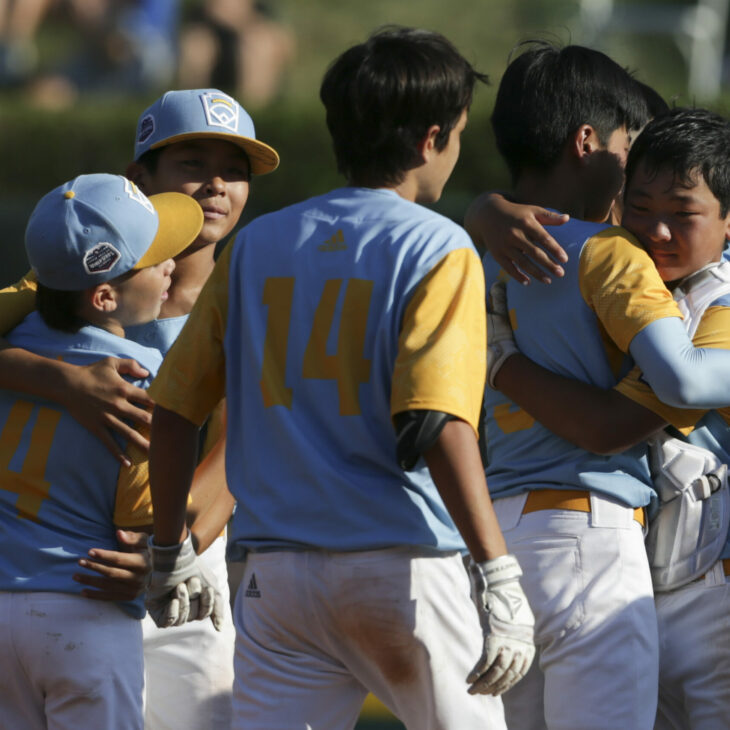5 Reasons Americans May Be Getting Along Better Than You Think
September 15, 2022

Americans don’t seem to agree on much these days – we’re deeply divided around a range of political issues from abortion to gun control. We can’t even agree on how bad things are. Baptist News Global, citing a survey by PRRI , noted recently that “almost half of Americans (49%) said U.S culture and life have improved since the 1950s, versus 50% who say it has changed for the worse.”
The more positive, and often unnoticed, stories of civic repair were the focus of a recent event hosted by the Jewish Congregation Rodeph Sholom in New York City. Titled “Awakenings: Transforming America for Good,” the Sept. 12 discussion moderated by CNBC global markets reporter Seema Mody focused on stories of people, institutions and businesses driving positive transformation in a challenging time.
The conversation featured Rodeph Sholom’s Rabbi Ben Spratt and Rabbi Joshua Stanton of New York City’s East End Temple, who co-authored the book “Awakenings: American Jewish Transformations in Identity, Leadership and Belonging,” which describes a revival flowering in American Judaism.
They were joined in conversation by Eboo Patel, president and founder of Interfaith America and author of “We Need to Build: Field Notes for Diverse Democracy,” and Alex Hardiman, chief product officer, The New York Times.
Each panelist shared examples of ways they see Americans working together. Here are five things giving them hope:
Wordle: Hardiman leads a team responsible for bringing engaging, interactive technology to Times’ readers, including this viral word game that draws hundreds of thousands of players each day. Hardiman notices people sharing tips and scores on social media platforms. She’s most proud of work behind the newspaper’s Covid tracker, an open source tool that helped The New York Times win a Pulitzer Prize – and drew half the American population to the paper’s website when looking for reliable information on COVID-19 in March 2020. But, she adds, “Wordle is a really fun example” of how technology can help build community. “There’s no political ideology tied to Wordle. Wordle is fun.”
Cooking apps: The same goes for The New York Times’ cooking app. Hardiman oversees that project too, and at a time when political rivalries dominate the news cycle, “You can find people across the country with entirely different ideologies and backgrounds swapping tips for ingredients” and cooking techniques, Hardiman said, “which is kind of amazing.”
Little League: Patel said community sports leagues give him hope for the future. “Little League is a total miracle. Nobody gets paid and it takes so much time” as volunteer parents work together to coach, plan schedules, check field conditions and arrange after-game snacks. “The entire endeavor is set up so you can cooperate with people with whom you disagree.” Patel sees the same thing happening in hospitals, Habitat for Humanity projects, Girl Scouts, YMCAs and 4H clubs.
“The magic,” Patel says, is that these institutions “bring together people who would fight about anything else and they facilitate cooperation.”
People who don’t show up for religious services: You’d think a rabbi would be depressed by the notion that more than 70% of American Jews attend a synagogue a few times a year or less, but Rabbi Joshua Stanton sees it as an opportunity. A strong majority of American Jews say they’re proud to be Jewish, he notes, and the book he wrote with Spratt chronicles an exciting array of Jewish activism and spirituality taking place beyond the synagogue walls. “The most exciting thing that’s going on right now is instead of people being consumers or waiting for the rabbi or the cantor to be entertained, people are being called to be co-creators,” Stanton said. “We have to start by listening to those who are not in our midst.”
Stories: “It is really story that brings us together,” Rabbi Spratt said. “Sometimes I think what this country needs is a good story.” He shared one from the Talmud, about a group of rabbis visiting the destroyed remains of the Jewish Temple in Jerusalem in the 1st century C.E. While the rabbis wailed in mourning by the rubble, one named Rabbi Akiva began to laugh with joy. “We always knew this would come down,” Akiva said. “We get to be the ones tasked with what comes next.”
Watch the video of Awakenings: Transforming America for Good.
Share
Related Articles
American Civic Life
Faith Based Efforts Work in Vaccine Uptake: Now Let’s Make it Easy
American Civic Life
American Civic Life
Is This a Time for Bridgebuilding? 5 Leaders in Conversation



